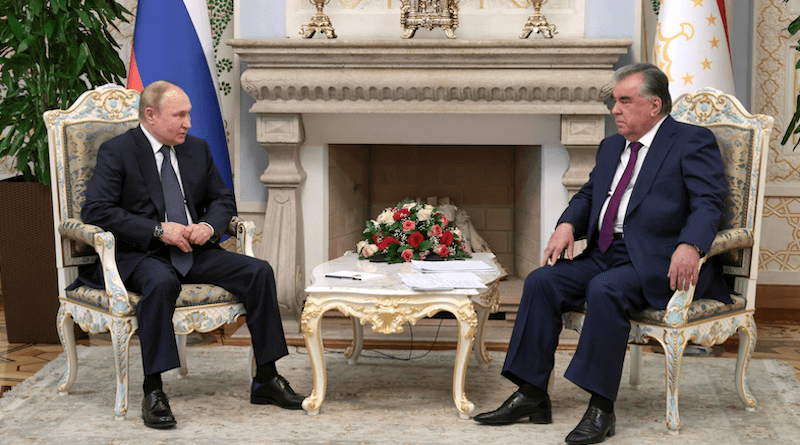Tajik President Demands Putin Respect His Country And Other Smaller Nations Lest Region Undergo A Repeat Of 1991 – OpEd
By Paul Goble
In what may be the most dramatic consequence of the Ukrainian war on the rest of the former Soviet space, Tajikistan President Emomali Rakhmon told Vladimir Putin to his face that he must respect other countries and nations even if they are smaller or face the prospect of a reprise of the events of 1991.
At a summit meeting between Putin and the leaders of the Central Asian countries, Rakhmon said that “yes we are small peoples. We don’t number 100 million or 200 million. But we have a history and a culture. We love them and we want you to respect them (youtube.com/watch?v=k0plRt5-eUE and centralasia.media/news:1810952).
Otherwise there will be enormous problems, problems that are exactly those which in 1991 were “the chief cause of the disintegration of the Soviet Union … Then, as now, there wasn’t attention to the small republics and the small peoples; their traditions, customs and all the rest weren’t respected; and their development was not supported.”
The Tajikistan president did not say that he was talking about the possible disintegration of the Russian Federation if Putin fails to change course, but that was certainly implied. Instead, Rakhmon made it clear that any hope Putin has for the reintegration of the former Soviet space is for naught unless the Kremlin leader treats others differently than he has been.
Two things are remarkable about this. On the one hand, Rakhmon is the president of a country on which there is a Russian military base and which relies on Russia for its defense and for the employment of many hundreds of thousands of its citizens who are employed as migrant workers in Russia.
For such a leader to engage in such lese majeste would have been unthinkable in the past. But Russia’s failure in Ukraine has made that not only thinkable but quite likely a political necessity given the changes in the balance of powers as a result in the world and on the territory of what was once the USSR.
And on the other, Putin did not respond as he undoubtedly would have earlier by denouncing what Rakhmon said or at least attacking its premises. Instead, the Kremlin leader said that he wanted to begin his remarks by saying that “in reality, I think that [Rakhmon] is correct to a significant degree” (iz.ru/1410597/2022-10-15/putin-otvetil-rakhmonu-na-prizyv-ne-otnositsia-k-azii-kak-k-sssr).
Behind this diplomatic façade, Putin was beyond any doubt furious that anyone, let alone the head of a country he clearly views as a Russian client state, would speak to him like that. But that he felt compelled to answer in this way, at least in public, suggests that Putin too is aware that the world has changed and that Russia and he are in trouble.

